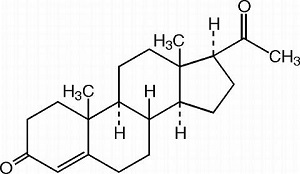
Q: What are the symptoms of PCOS?
Marla Ahlgrimm: Unfortunately, there is no definitive list of symptoms that every woman will experience. However, most common are noticeable facial and abdominal hair, androgenic alopecia, acne, obesity, and polycystic ovaries. Women with the disease may be at an increased risk of diabetes, cardiovascular disease, and endometrial cancer. PCOS is often undiagnosed until a woman’s childbearing years, when infertility issues may arise. Interestingly, polycystic ovary syndrome may be diagnosed with or without the actual presence of cysts.
Q: What causes this disease?
Marla Ahlgrimm: PCOS develops when the body over-produces certain androgens including testosterone. Overproduction of certain hormones may stimulate androgen stores, interfering with normal female development. And, though not all obese women develop PCOS, there is strong cause to believe that elevated insulin levels that result from excessive weight play a significant role in the development of PCOS and other reproductive/hormonal issues.
Q: Is PCOS hereditary?
Marla Ahlgrimm: Historical evidences suggests that PCOS and its related metabolic conditions may have a hereditary basis.
Q: Is progesterone an effective treatment for PCOS?
Marla Ahlgrimm: One universal attribute of PCOS is low progesterone levels. A bioidentical progesterone – one identical to the woman’s natural hormone, can help the body achieve its ideal hormone levels. Progesterone therapy may be prescribed for short term application but a six month course is often necessary to confirm the effectiveness of the treatment. Weight loss, thinning facial hair, and diminishing acne are all signs the treatment is working. Some women may need to continue progesterone therapy indefinitely.